Have you ever seen a child act so unruly and hostile that you just stared in disbelief? Maybe you blamed the parents for a lack of discipline. Or perhaps you even felt sorry for them. There might be something else at play in situations like this. It’s called Oppositional Defiant Disorder (ODD) and, as the name suggests, it’s characterized by excessive defiance and disobedient behavior towards adults and authority figures.
One teen has shed some light on ODD and the chaos that comes with it. The 17-year-old revealed that her young cousin has the disorder and that his parents’ lives are a living hell. The teen refuses to babysit the boy because she fears something bad will happen. But she’s now being accused of discriminating against him.
An 8-year-old boy has no friends and is constantly in trouble because of his bad behavior
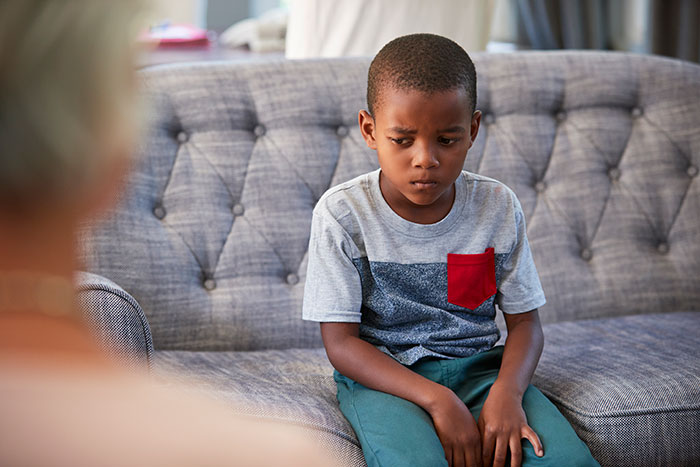
Image credits: monkeybusiness (not the actual photo)
His older cousin is too scared to babysit him as a result, but she’s being accused of discrimination
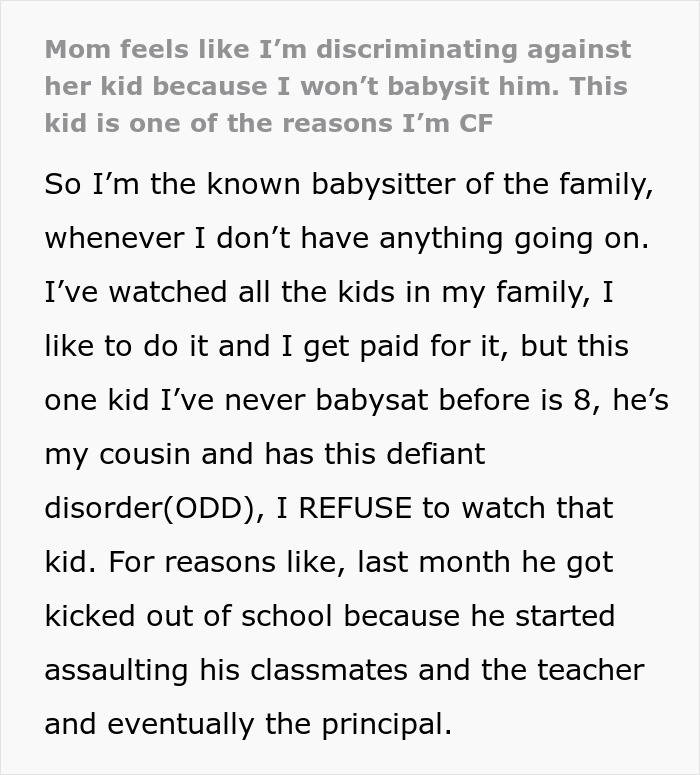
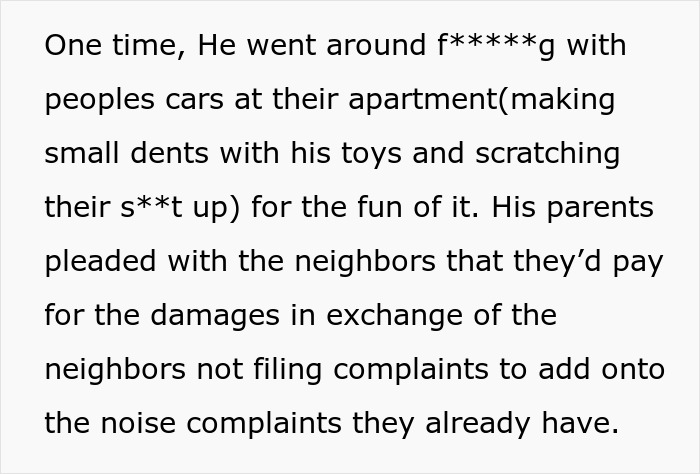
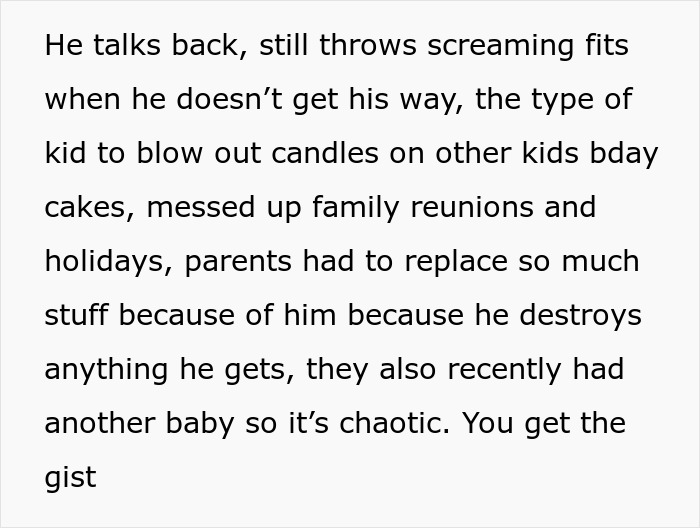
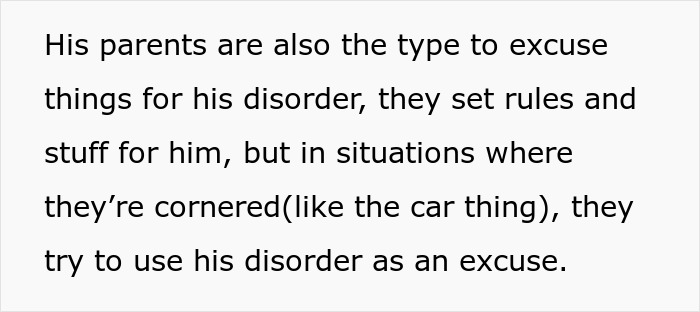

Image credits: Prostock-studio (not the actual photo)
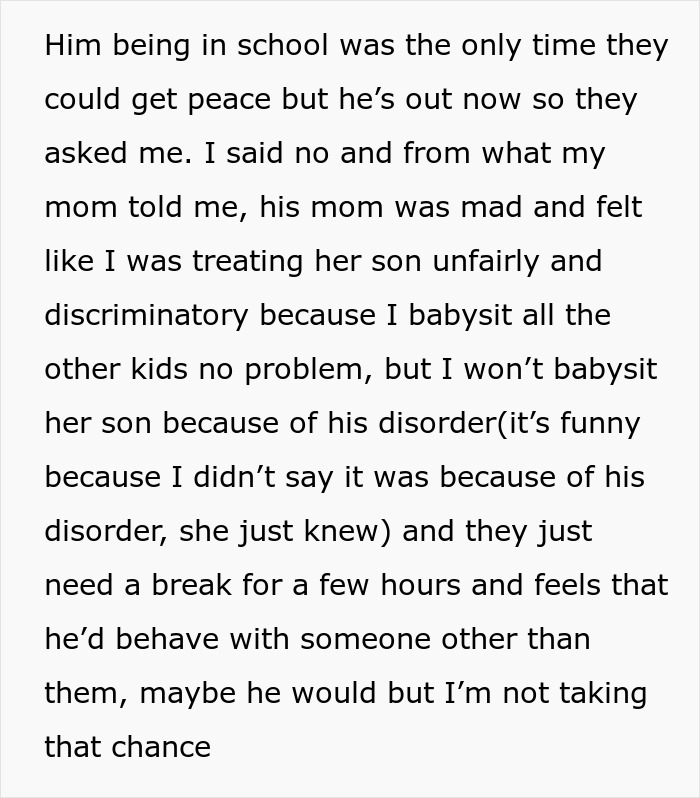
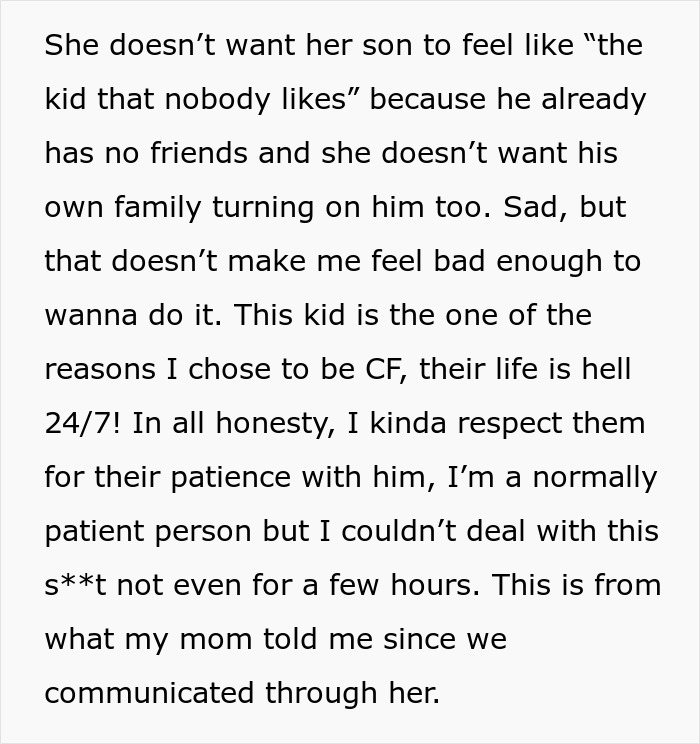
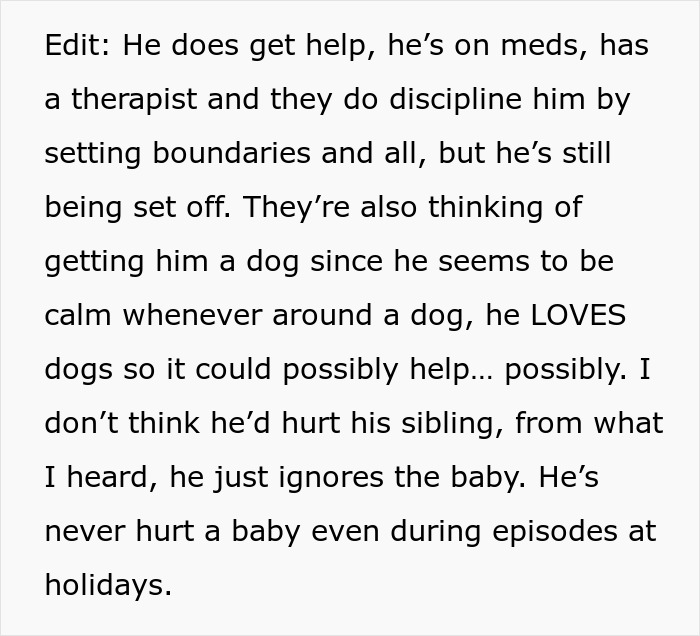
Image credits: American_Berry
People rushed to the comments, and many felt the child needed professional help
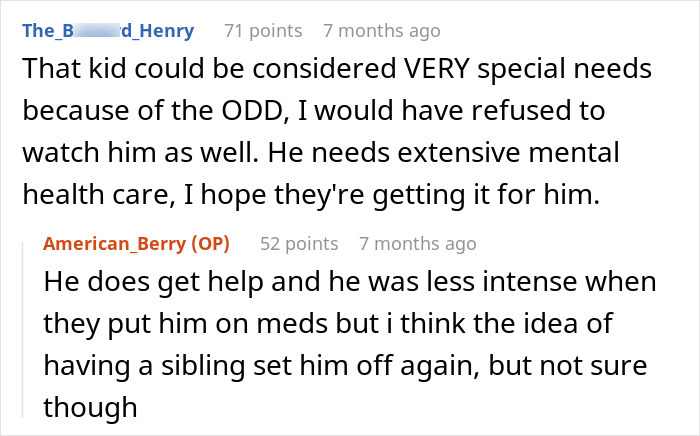
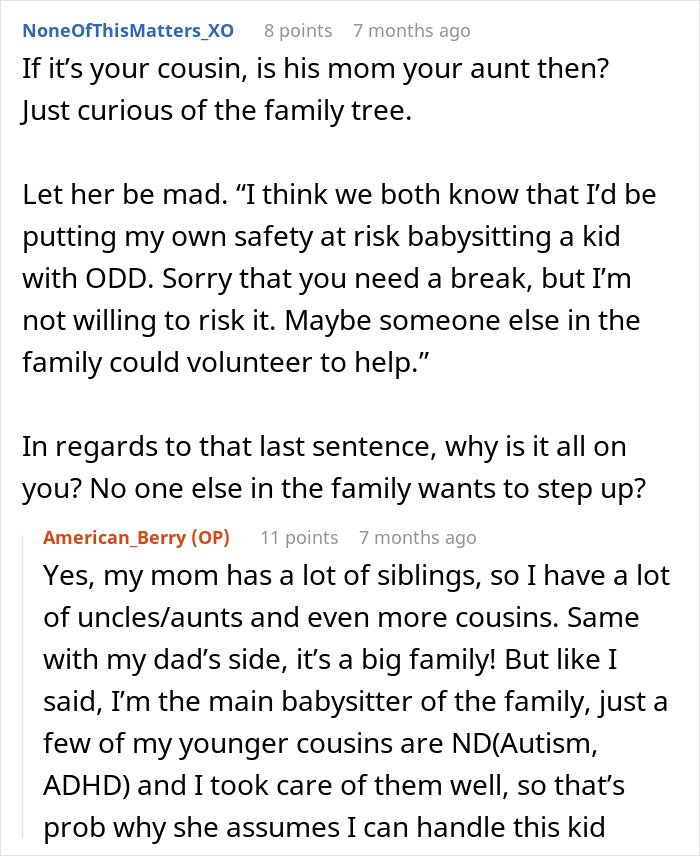


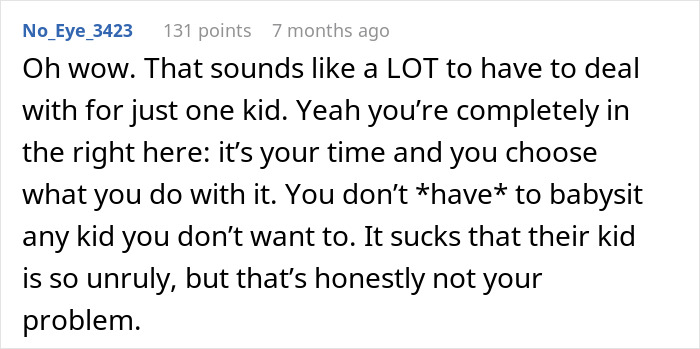
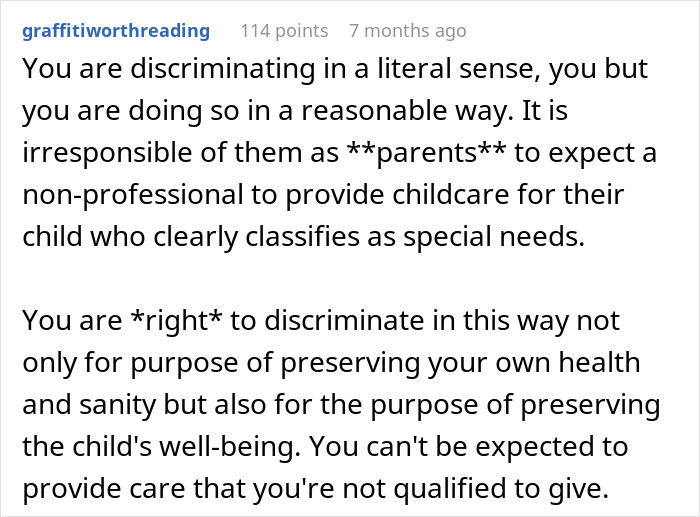



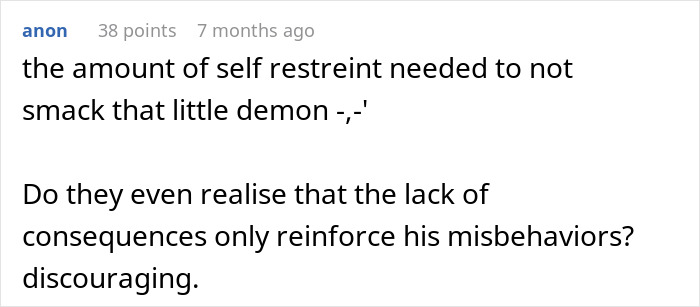
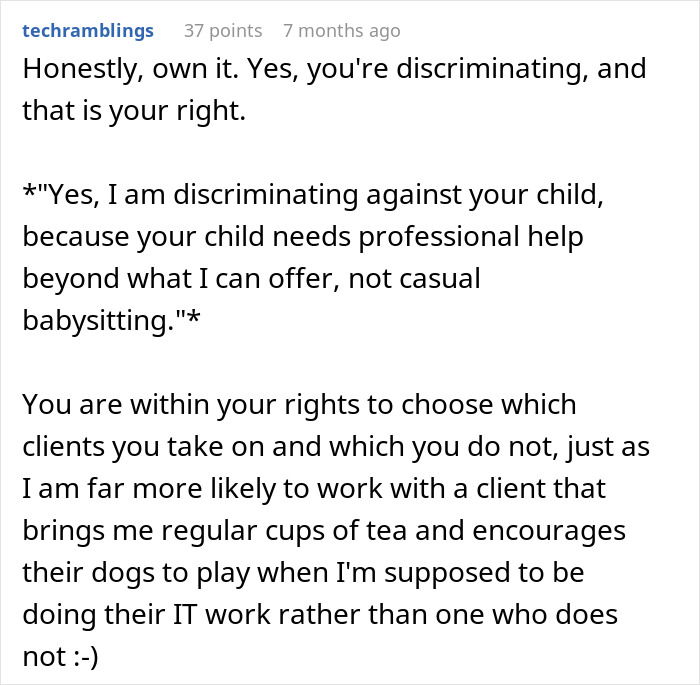

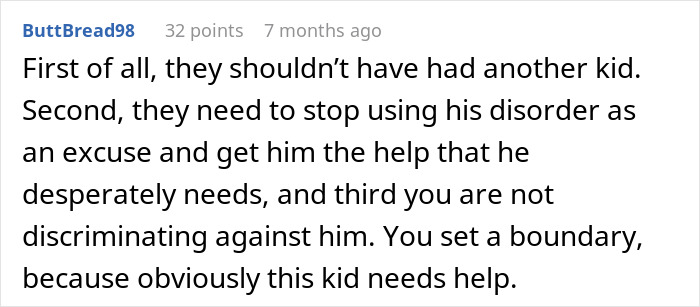





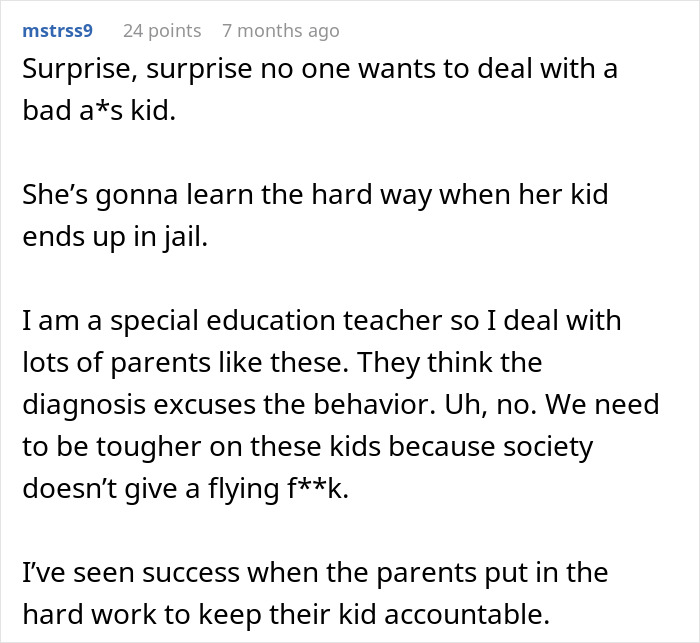

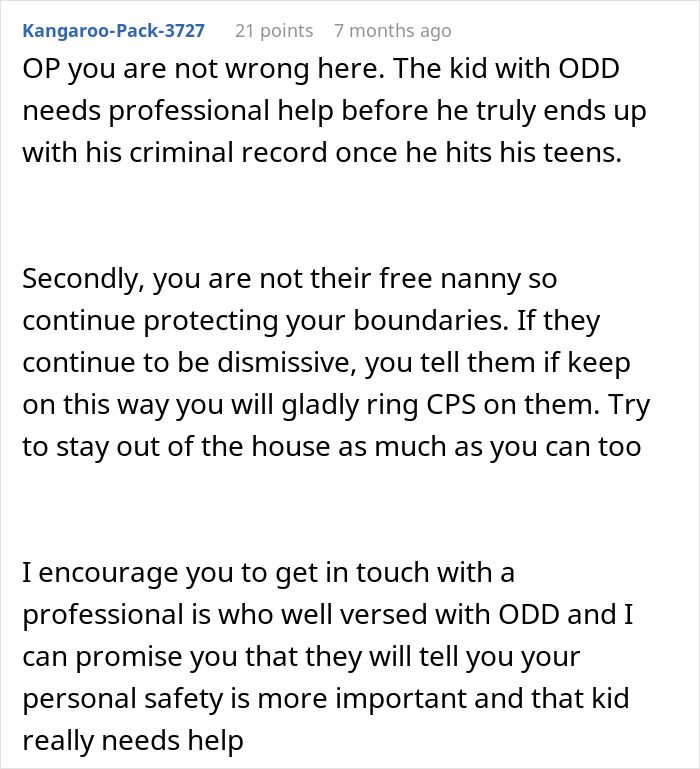
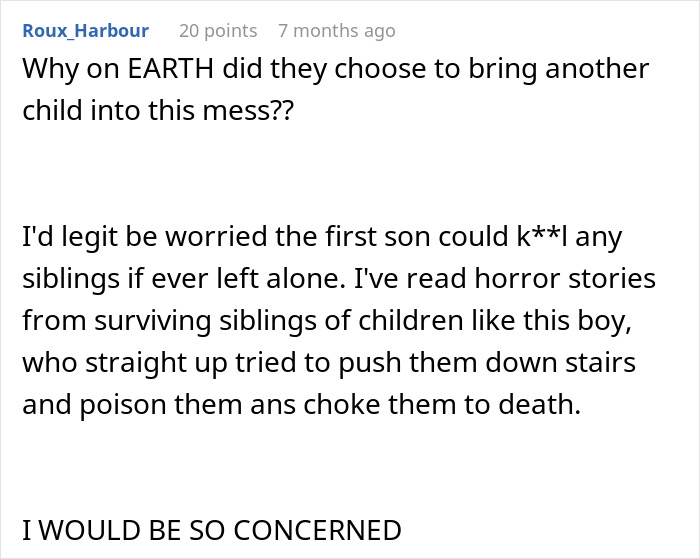
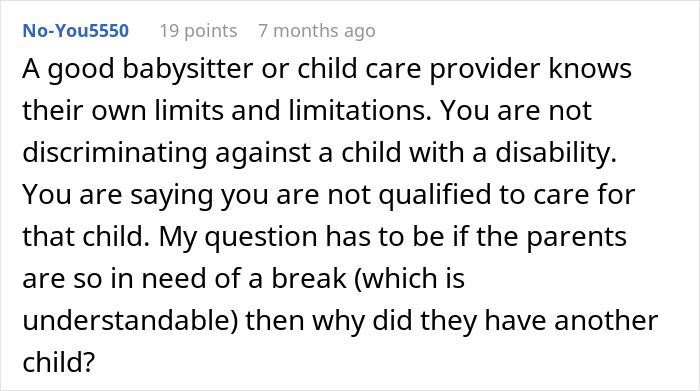
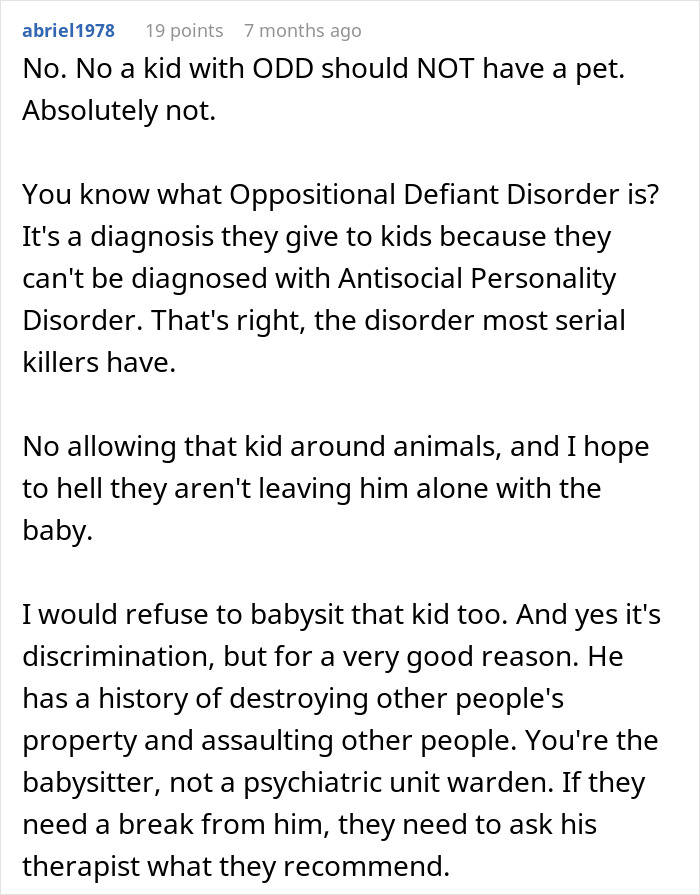
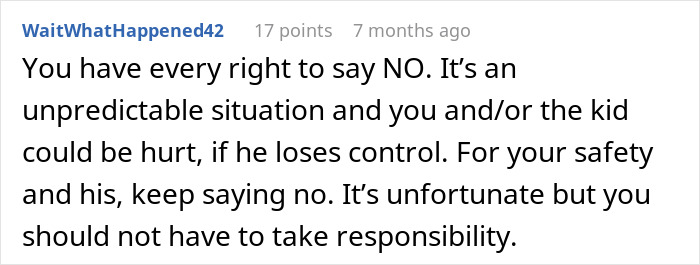
Some netizens shared their own similar experiences
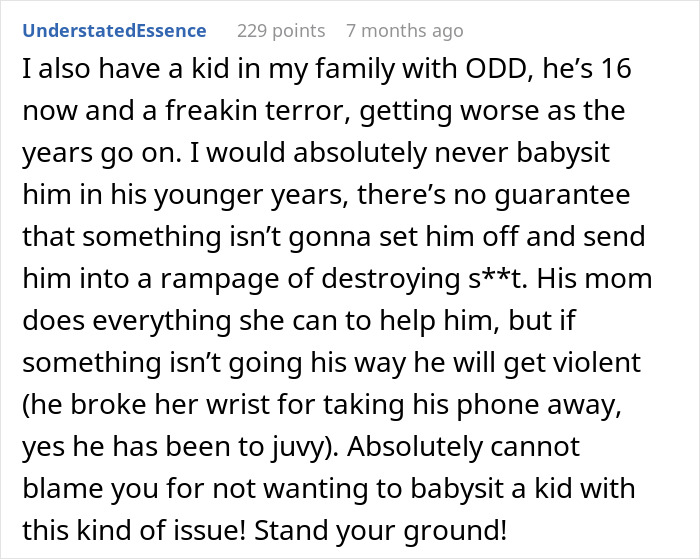
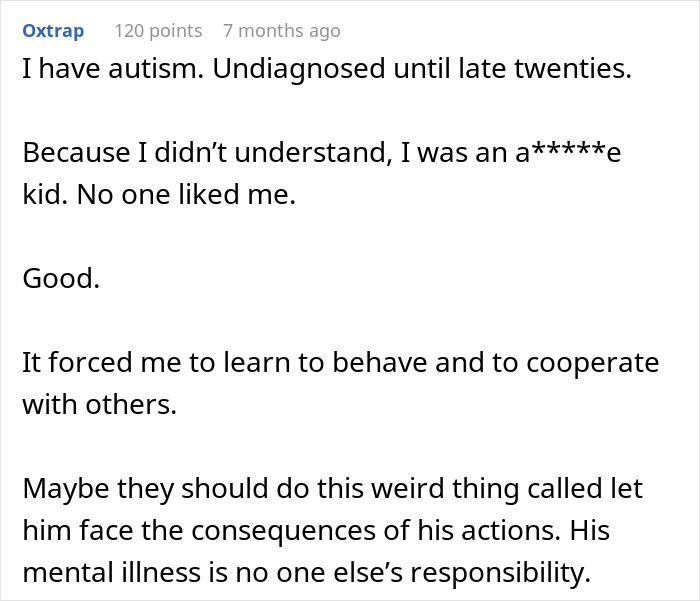
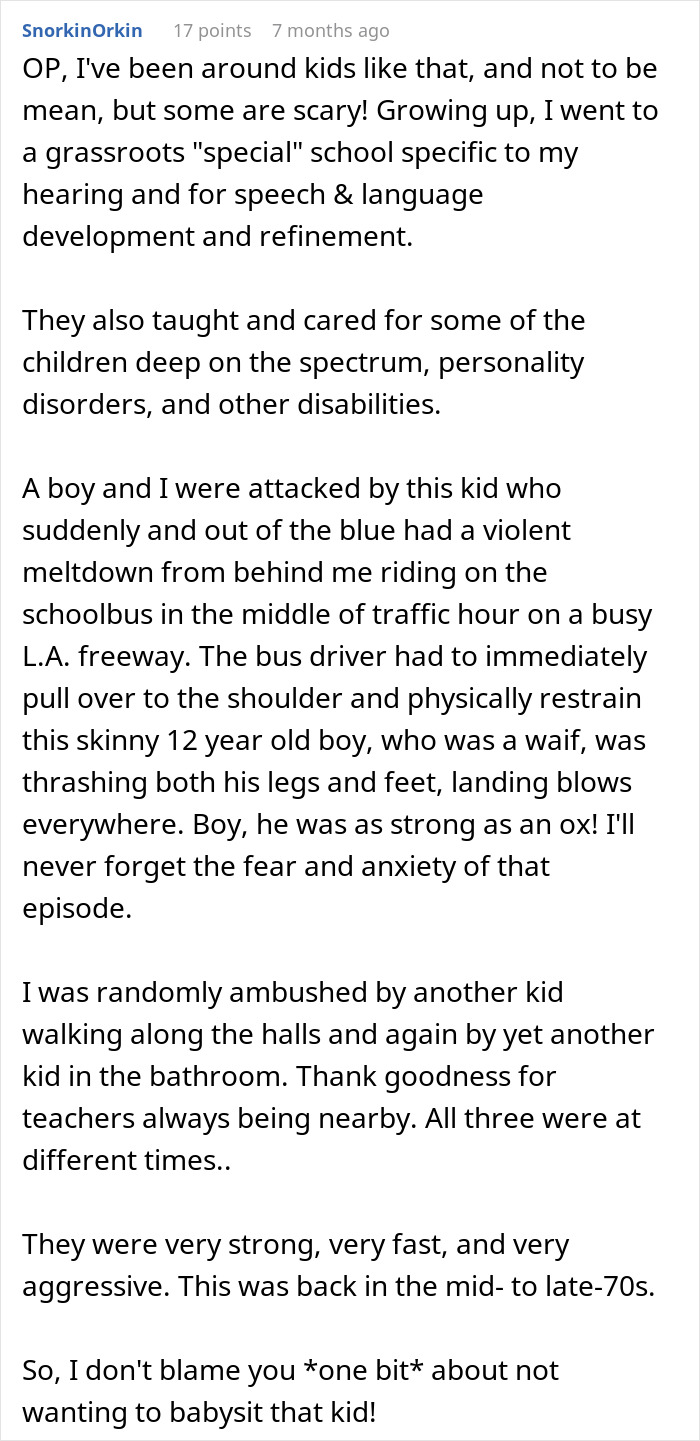
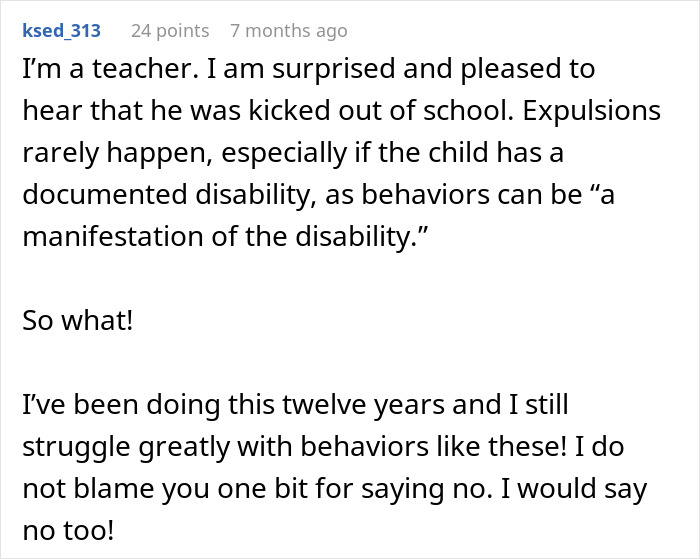

Image credits: Image-Source (not the actual photo)
The teen posted an update revealing things had taken a drastic turn
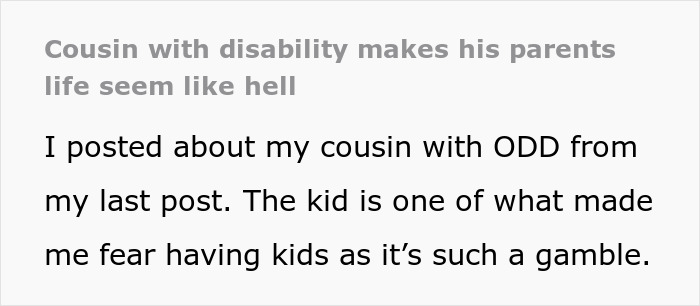

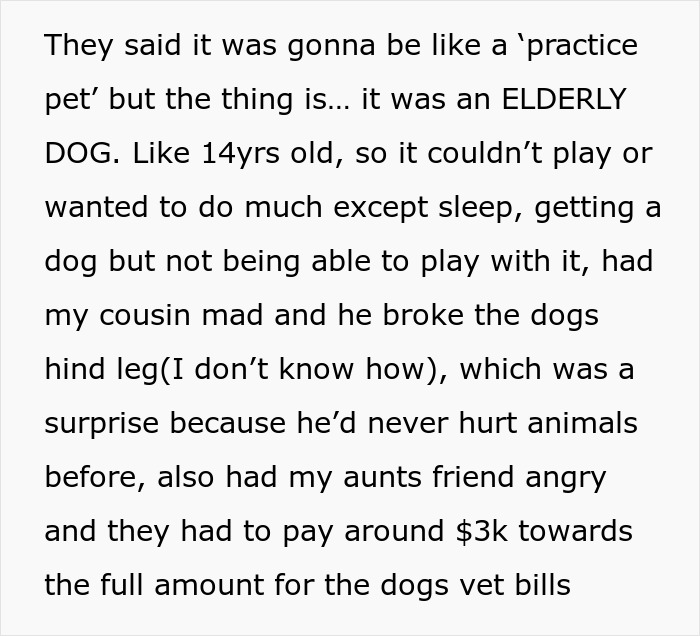

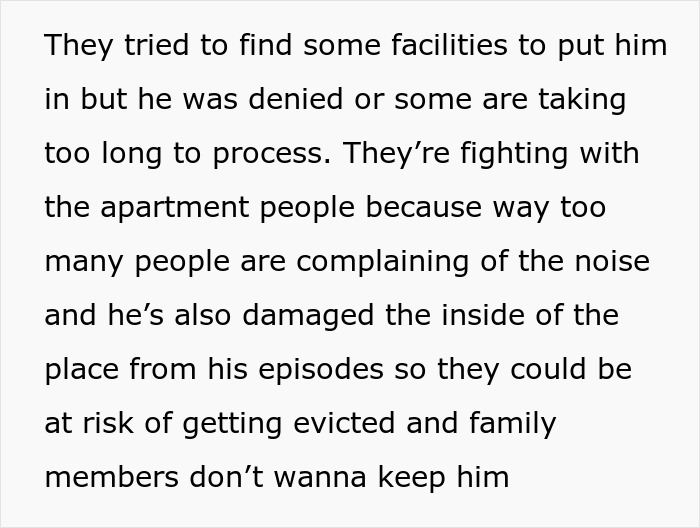
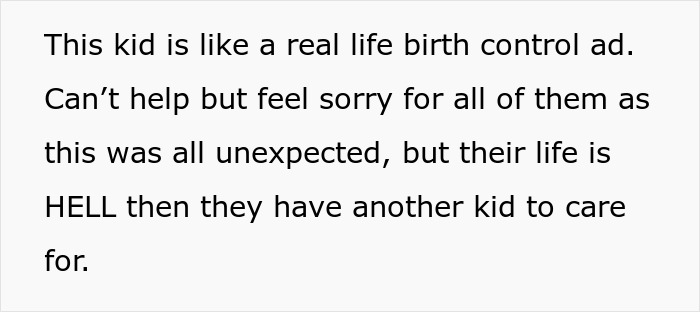
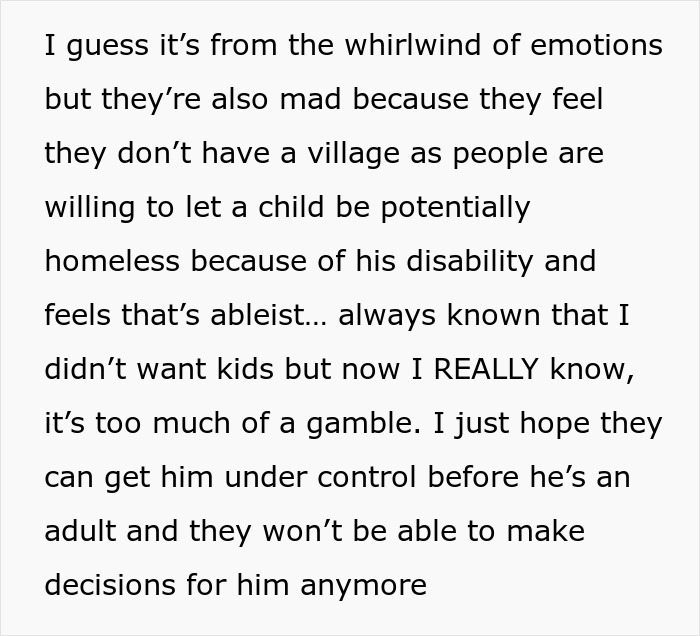
Image credits: American_Berry
There could be something serious lurking beneath your child’s defiant behavior
Even the most angelic children have their “off days.” They refuse to listen, cooperate, or act out. Heck, even adults go through periods of defiance for whatever reason. But when a child is constantly difficult and shows an ongoing pattern of anger, irritability, arguing, and defiance toward parents and other authority figures, it might be time to seek professional help.
It’s possible they have what’s known as oppositional defiant disorder or ODD. The disorder is characterized by the above-mentioned symptoms but can also include spitefulness, revenge-seeking, or vindictiveness. ODD can wreak havoc on the child’s life and affect everyone around them. Their friendships, school, and work might suffer. Or they might struggle to make any friends at all.
It can feel impossible for parents to manage their child on their own, which is why it’s advisable to get health care providers, mental health professionals, or child development experts in to help. Alongside therapy, medication may be needed.
“Your child isn’t likely to see their own behavior as a problem,” warn the experts at MayoClinic. “Instead, your child will probably complain about unreasonable demands or blame others for problems.”
The site notes that symptoms of ODD generally begin during preschool years. ODD can develop later, but generally, it shows up before adolescence. The emotional and behavioral red flags include an angry and irritable mood, argumentative and defiant behavior, and hurtful and revengeful behavior. And they last for at least six months.
As with most things in life, there are levels to ODD. It can be mild, moderate, or severe. In kids with mild cases, symptoms occur only in one setting, like home, school, work, or with their friends. Those with moderate ODD show symptoms in at least two settings. And if the disorder is severe, the child will act out in three or more settings.

Image credits: wirestock (not the actual photo)
Here’s what to look out for, according to experts:
If you’re struggling with your young child and suspect there might be something else at play, MayoClinic notes that there are quite a few signs that point to ODD…
These include the child being angry and resentful, often and easily losing their temper, or being frequently touchy and easily annoyed by others.
They may show obvious argumentative and defiant behavior by fighting with adults or people in authority.
They love to dig their heels in by actively refusing to follow adults’ requests or rules.
Maybe they often annoy or upset people on purpose. Or blame others for their own mistakes or misbehavior.
Many children with ODD say mean and hateful things when upset.
They also deliberately try to hurt the feelings of others.
They’re known for seeking revenge or being vindictive.
If your child has shown vindictive behavior at least twice in the past six months, there could be cause for concern. And it could be time to reach out to professionals for help, instead of suffering alone.

Image credits: kwanruanp (not the actual photo)
Many people were very concerned and suggested a major intervention


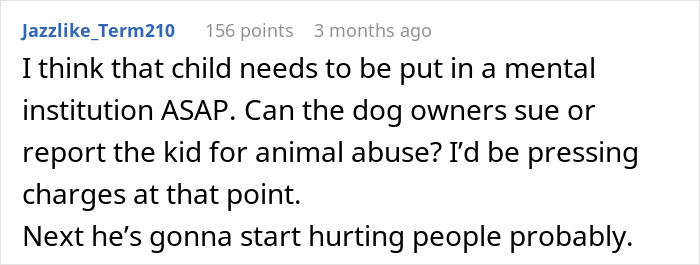


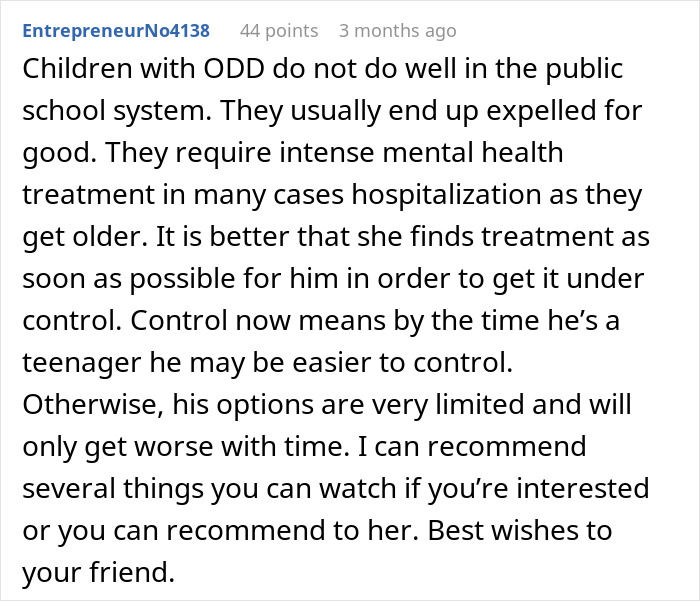







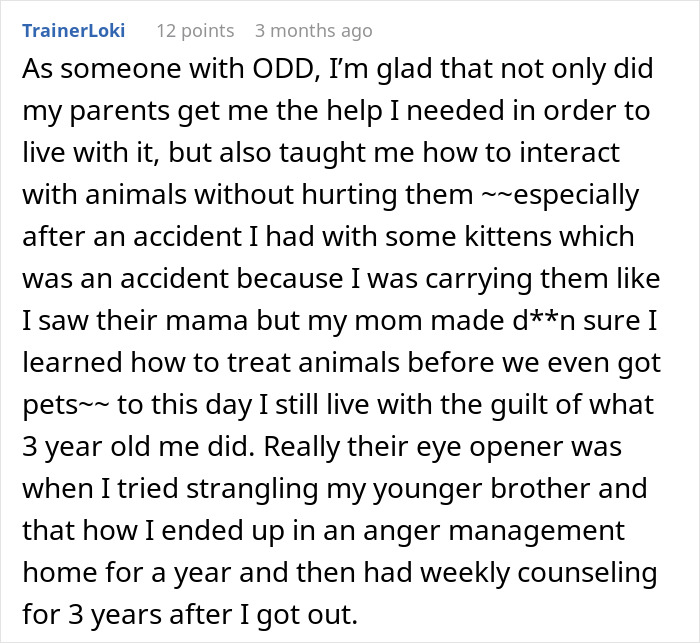





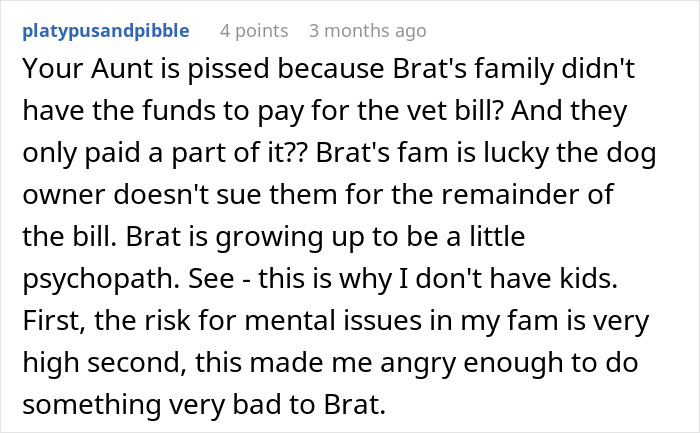

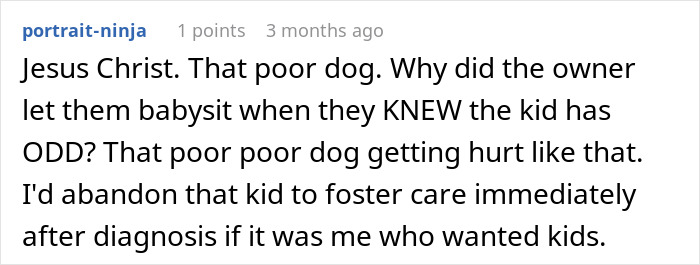

from Bored Panda https://ift.tt/89go2U1
via IFTTT source site : boredpanda